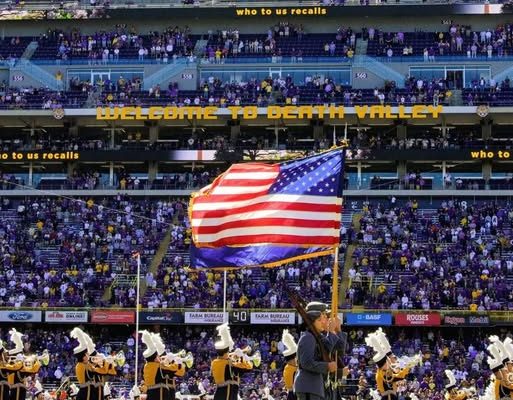Today, we honor the memory of those who lost their lives on September 11, 2001, a day that forever altered the course of history for the United States and the world. On that clear Tuesday morning, the lives of nearly 3,000 people were tragically taken in a series of coordinated terrorist attacks that shook not only the nation but the collective consciousness of people everywhere. The events of 9/11 remain etched in our memories as a stark reminder of the fragility of life and the unpredictable nature of violence in the modern world. Families were torn apart in an instant, communities were thrown into mourning, and the very sense of security that Americans had long taken for granted was shattered. The day began like any other, but by mid-morning, the skies over New York, Washington, D.C., and Pennsylvania had become scenes of devastation and heartbreak.
In New York City, the Twin Towers of the World Trade Center stood as symbols of economic power and ambition, towering above the streets below. The first plane struck the North Tower at 8:46 a.m., followed by the second plane hitting the South Tower at 9:03 a.m. Witnesses watched in horror as the buildings, once icons of modern architecture and human achievement, became engulfed in flames. The sheer scale of the attacks was unimaginable, and the subsequent collapse of both towers at 9:59 a.m. and 10:28 a.m., respectively, left a cloud of smoke, dust, and debris that blanketed lower Manhattan. Emergency responders, office workers, and ordinary citizens were faced with chaos, fear, and the immediate need to make life-or-death decisions. Many ran for safety through the thick smoke and falling debris, while others, trapped above the impact zones, faced an unimaginable choice between staying or jumping. The bravery displayed that day by firefighters, police officers, paramedics, and ordinary citizens remains one of the most enduring legacies of human courage in the face of extreme danger. These men and women ran toward the very threat that others were fleeing, and countless lives were saved because of their selflessness.
The attacks were not limited to New York City. In Arlington, Virginia, at 9:37 a.m., American Airlines Flight 77 crashed into the Pentagon, the headquarters of the United States Department of Defense. The impact caused massive destruction, claiming the lives of 125 people inside the building as well as 59 passengers and crew members on the plane. The Pentagon, a symbol of American military strength, had been targeted to inflict both physical damage and psychological terror. The crash site became a scene of chaos as emergency responders and military personnel worked tirelessly to rescue survivors and secure the area. Similarly, United Airlines Flight 93, which had been hijacked by terrorists, crashed in a field near Shanksville, Pennsylvania, at 10:03 a.m. after passengers and crew bravely attempted to overcome the hijackers. Though no one on board survived, the actions of those on Flight 93 prevented further destruction, potentially saving countless lives in Washington, D.C., where the intended target may have been the Capitol or the White House.
The human toll of 9/11 was staggering. Nearly 3,000 individuals lost their lives, and thousands more were injured, many of whom continue to suffer from long-term health effects caused by exposure to toxic dust and debris at Ground Zero. The victims represented a cross-section of humanity, hailing from all walks of life, ages, and nationalities. Office workers, first responders, airline passengers, and countless civilians were among those whose lives were cut short. Families were left grieving, and the nation collectively mourned the loss of innocent lives to a senseless act of violence. In the years that followed, the stories of survivors, rescue workers, and families of the victims served as a reminder of the personal and collective impact of the attacks. Books, documentaries, and countless memorials have preserved the memories of those who perished, ensuring that their lives are never forgotten. Memorials like the National September 11 Memorial & Museum in New York City provide spaces for reflection, education, and remembrance, reminding future generations of the human cost of terrorism and the resilience of those who endured unimaginable loss.
The psychological impact of the attacks rippled across the globe. Fear, grief, and uncertainty permeated communities as the world grappled with the shocking events. In the United States, a heightened sense of vulnerability emerged, prompting significant changes in security protocols, travel regulations, and emergency preparedness. The attacks reshaped not only domestic policies but also international relations, as the U.S. launched efforts to combat terrorism on a global scale. The War on Terror led to military engagements in Afghanistan and Iraq, aimed at dismantling terrorist networks and preventing future attacks. These actions sparked debates about security, civil liberties, and the ethics of military intervention, debates that continue to influence policy decisions to this day. At the same time, communities across the country and around the world came together in solidarity, offering support to victims’ families, honoring first responders, and reaffirming a commitment to unity in the face of adversity.
Acts of heroism on 9/11 were not limited to first responders; ordinary citizens displayed extraordinary courage. People in the buildings and on the streets made split-second decisions that saved lives, whether by guiding others to safety, providing medical aid, or standing up to the hijackers. The passengers on Flight 93, in particular, exemplified courage and selflessness, taking action despite knowing the grave risks. Their determination to fight back against the attackers has become a powerful symbol of resistance and heroism. These stories serve as a reminder that even in moments of profound darkness, human beings can rise to extraordinary acts of bravery, compassion, and resilience. Commemorating these individuals alongside those who lost their lives reinforces the idea that heroism comes in many forms and that ordinary people can make extraordinary differences in moments of crisis.
In addition to the immediate impact, 9/11 changed the way society views vulnerability and preparedness. Buildings and infrastructure were reevaluated for safety, emergency response systems were strengthened, and counterterrorism efforts were expanded. The attacks prompted innovations in intelligence gathering, airport security, and public awareness campaigns. Citizens were encouraged to remain vigilant, and programs aimed at educating the public about signs of potential threats became commonplace. Despite these efforts, the attacks highlighted that no system is entirely foolproof, and the importance of community, cooperation, and preparedness has never been clearer. Schools, workplaces, and government agencies instituted drills and safety protocols, ensuring that lessons learned from 9/11 continue to inform how society responds to potential threats today.
The legacy of 9/11 is also reflected in the arts, literature, and media. Writers, filmmakers, and artists have explored the personal, social, and political dimensions of the attacks, capturing the emotional and historical significance for future generations. Films, novels, and documentaries have depicted both the horror of that day and the resilience of the human spirit in its aftermath. Artistic expression has provided a way to process grief, honor those who were lost, and reflect on the broader implications of the attacks. Museums and memorials have become spaces where stories of survival, loss, and heroism are shared, fostering empathy and understanding across generations. The ongoing dialogue around 9/11 emphasizes that remembrance is not only about honoring the past but also about learning from it to build a more informed, compassionate, and resilient society.
As we honor the memory of those who lost their lives, it is equally important to recognize the resilience of the survivors and the families who continue to live with loss. Many have channeled their grief into advocacy, support networks, and community initiatives that benefit others who have experienced trauma. Organizations dedicated to assisting first responders, providing mental health support, and preserving the history of 9/11 ensure that the lessons learned extend far beyond the immediate aftermath. The stories of courage, perseverance, and solidarity that emerged in the wake of the attacks inspire not only Americans but people worldwide to confront challenges with compassion and determination. Their efforts remind us that even in the face of tragedy, humanity has the capacity for empathy, action, and hope.
Every year, the nation pauses to remember September 11, honoring the lives lost, the heroes who emerged, and the resilience that defined the response to the attacks. Ceremonies, moments of silence, and educational programs provide opportunities for reflection and remembrance. Across the country, flags are flown at half-mast, and communities come together to ensure that the memories of the victims remain alive in public consciousness. Schools teach students about the historical significance of 9/11, while families share personal stories that humanize the statistics and preserve the legacies of those who were lost. These acts of remembrance reinforce the enduring impact of the day, ensuring that it is never forgotten and that the sacrifices made continue to shape our understanding of courage, resilience, and unity.
In remembering September 11, we are reminded of the fragility of life and the profound value of human connection. The attacks challenged assumptions about safety and security, but they also highlighted the strength that emerges when people come together in the face of adversity. Families, neighbors, colleagues, and strangers alike demonstrated remarkable compassion, creating networks of support that sustained communities through the darkest hours. This shared humanity, the willingness to help others without expectation of reward, serves as a lasting testament to the potential for good even amid the worst of circumstances. By honoring those who perished, we reaffirm our commitment to empathy, solidarity, and vigilance, ensuring that their memories inspire future generations to act with courage and kindness.
Today, as we reflect on the events of September 11, 2001, we do so with a mix of sorrow and reverence. The tragedy of that day cannot be overstated, yet it is accompanied by stories of heroism, selflessness, and resilience that define the human spirit. By remembering the lives lost, we pay tribute to their enduring legacy, acknowledging the profound impact they had on the lives of those around them. By honoring the first responders and ordinary citizens who acted with bravery, we celebrate the courage that emerges in moments of crisis. And by supporting survivors and families who continue to live with the aftermath, we demonstrate a collective commitment to compassion, justice, and remembrance. September 11 will forever be a day of profound loss, but it is also a day that showcases the enduring strength of humanity, the importance of community, and the power of memory to guide us toward a more empathetic and resilient world. Today, we honor all those whose lives were taken, the heroes who risked everything to save others, and the survivors who continue to carry their memories forward, ensuring that the lessons and legacies of 9/11 endure for generations to come.



